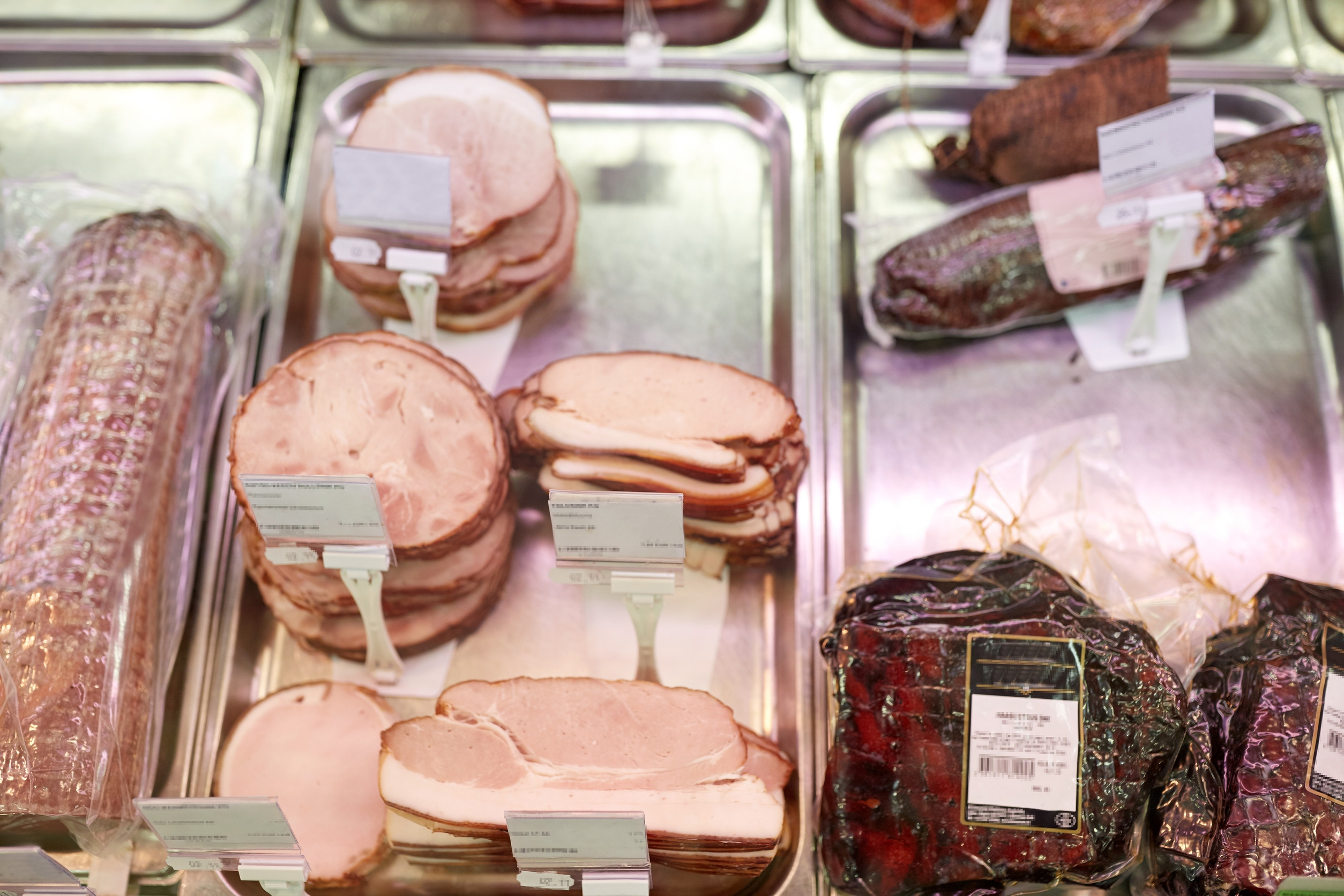
Many shoppers head to the deli counter expecting fresh cuts of meat and cheese straight from trusted brands. But behind the glass, things aren’t always what they seem. To cut costs, increase profit margins, or respond to supply shortages, some delis have started quietly replacing name-brand or premium products with cheaper alternatives. The switch often goes unnoticed by busy customers, but it can affect both quality and value. Here are five common ways delis are swapping products without always making it clear.
1. Turkey Breast Swapped for Blended Meats
One of the most frequent switches happens with turkey breast. Instead of offering pure, premium cuts, some delis use blended turkey products that include fillers and added water. These alternatives slice and look similar but often have less flavor and more sodium. Shoppers expecting oven-roasted or smoked turkey breast may unknowingly walk away with a lower-quality option. Reading the label or asking specifically for brand names is the best way to avoid this swap.
2. Cheese Brands Replaced With Store Labels
Cheese lovers may notice that their favorite brands are less available at certain deli counters. Instead, stores are stocking “private label” cheeses that look similar but aren’t always the same in taste or texture. While store brands can sometimes be just as good, the switch is often about saving money for the store rather than offering variety. For customers who care about authenticity, this swap can be disappointing. Asking for specific brands ensures you’re getting the product you expect.
3. Ham Substituted With Lower-Grade Cuts
Ham is another deli staple that often gets quietly replaced. Instead of premium honey or black forest ham, some delis substitute restructured or pressed cuts. These alternatives include trimmings bound together with additives, which keep costs down but reduce quality. Customers may notice a difference in texture or flavor, but the switch isn’t always obvious. To be sure, request ham by brand name or ask if it’s authentic black forest or a cheaper version.
4. Salami Blended With Fillers
Salami has long been known for its bold flavor, but not all salami at the deli counter is the same. Some delis sell alternatives that use more fillers, poultry blends, or cheaper spices in place of traditional pork or beef. The result looks similar but doesn’t have the same richness or quality. For shoppers who want authentic Genoa or hard salami, these replacements can be a letdown. Paying attention to ingredients and asking for specifics can prevent surprises.
5. Roast Beef Downsized in Quality
Roast beef is one of the pricier options at the deli counter, which makes it a prime candidate for substitutions. Instead of freshly roasted beef, some delis serve processed or prepackaged versions. These alternatives may include added flavoring, more sodium, or less tender cuts. The result is a product that looks like roast beef but tastes different. Smart shoppers learn to notice subtle changes in texture and flavor to spot when the product isn’t the real deal.
Why Transparency Matters at the Deli Counter
The deli is often considered the heart of the grocery store, where customers expect freshness and honesty. But quiet substitutions with cheaper alternatives can erode trust over time. For budget-conscious families, these swaps may not matter, but for others, quality and authenticity are worth the extra cost. Being an informed shopper means reading labels carefully, asking questions, and paying attention to subtle changes. At the end of the day, transparency is what keeps customers coming back.
Have you ever noticed your deli quietly swapping products for cheaper alternatives? Share your experiences and thoughts in the comments below!
You May Also Like…
- 9 Deli Items That Are Pre-Packaged but Marketed as Fresh
- 7 Cafeteria Foods From the ’80s That Would Never Pass Today’s Guidelines
- 7 Emergency Food Kits That Don’t Meet Safety Guidelines
The post 5 Ways Delis Are Quietly Replacing Products With Alternatives appeared first on Grocery Coupon Guide.







